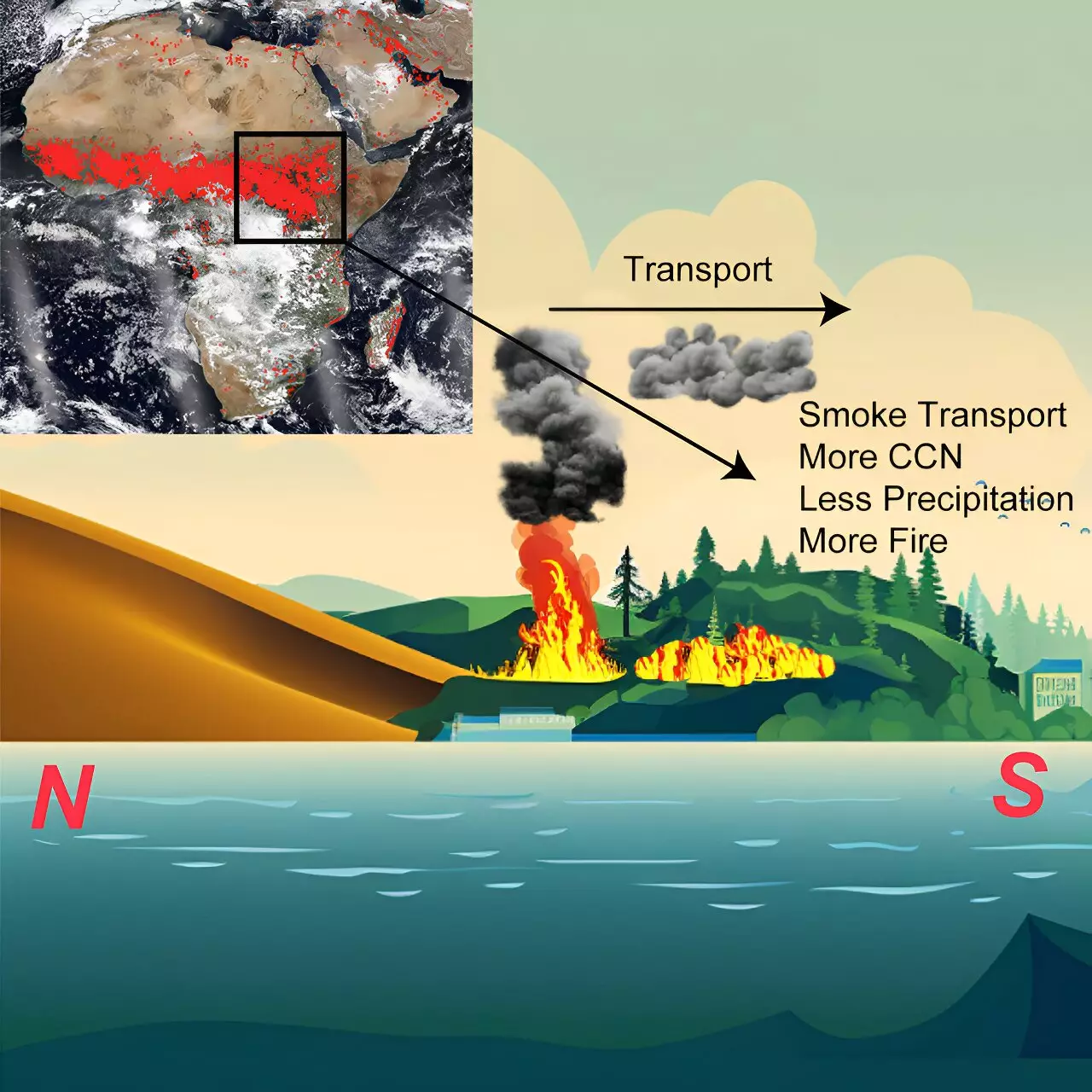Africa has been plagued by wildfires for thousands of years, and the situation shows no signs of improvement. In fact, the migrating African wildfire season is steadily increasing, with the continent experiencing more than 50% of the total area on Earth that is burning, on average. These wildfires have a significant impact on the African ecosystems and are influenced by a complex interplay between aerosols and the climate.
Aerosols are tiny particles that have a substantial impact on Earth’s climate. While human-induced air pollution is commonly visible, natural aerosols such as salty sea spray, mineral dust, volcanic ash, and wildfire smoke also play a crucial role in the climate system. Suspended in the atmosphere, aerosols have a complex role in regulating climate processes.
A new study conducted by researchers at Georgia Tech sheds light on the role of aerosols in the African wildfire life cycle. The study, published in the journal iScience, challenges the conventional understanding that aerosols have a short-term, localized climate impact that can be easily removed by precipitation. The researchers demonstrate that aerosols have a longer-term impact, extending over seasons and reinforcing wildfires.
To investigate the complex interactions between fires, aerosols, and climate in Africa, the researchers developed the Region-Specific Ecosystem Feedback Fire (RESFire) Model. This model enhances the existing Community Earth System Model (CESM) and allows for more accurate simulations of fire-climate-ecosystem interactions. The RESFire Model provided valuable insights into the role of aerosols in Africa’s wildfire feedback mechanism.
One of the key findings of the study is the positive feedback mechanism between fire aerosols and clouds. Aerosols can hinder the growth of large cloud droplets by absorbing vapor from the atmosphere, effectively reducing precipitation and drying out the fuel loads. This feedback mechanism intensifies the current wildfire season and amplifies burning in subsequent seasons.
Understanding the fire-aerosol positive feedback mechanism in Africa has broader implications for wildfire-related climate feedback globally. Previous studies have shown that in certain coastal areas, such as the western United States, fire smoke alters local fire weather and creates positive feedback. However, these effects do not persist into the next fire season. Africa, on the other hand, experiences a shifting fire regime and prevailing winds that sustain the positive feedback, leading to an increase in the duration and intensity of fire weather seasons.
While the self-sustaining nature of the aerosol feedback mechanism may provide some resilience, the presence of persistent global climate change raises questions about its long-term impacts. As the climate continues to change, it is uncertain how African wildfires and their interaction with aerosols will be influenced. The study highlights the need for further research to better understand and predict the effects of climate change on African ecosystems and wildfire patterns.
The study conducted by Georgia Tech researchers unveils the crucial role of aerosols in the African wildfire feedback mechanism. Unlike previous assumptions, aerosols have a longer-term impact on climate, reinforcing wildfires and paving the way for more intense fire seasons in subsequent years. This knowledge not only enhances our understanding of African ecosystems but also has implications for other regions prone to wildfires. As the world faces the challenges of climate change, it is imperative to continue studying the complex interactions between wildfires, aerosols, and the climate to mitigate the potential impacts and protect vulnerable ecosystems.


Leave a Reply